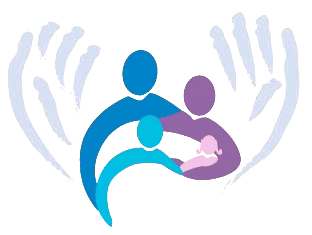Archive for January 2018
Making Time for Your Spine
Is spinal health a priority in your lifestyle?
How lazy are we? Spinal health is a good measuring tool. We are all aware of what a sitting-heavy, movement-lacking lifestyle can do to our spines. Even then, few of us take the initiative to care for our spines seriously until something is wrong: a crick in the neck, a stiff and sore lower back, a painful pinched nerve; these are the wake up signals that prompt us to take action in defense of our spine. But what if you never had to reach that point to begin with? If you are lucky enough to have a pain-free spine right now, don’t take it for granted! Realize how lucky you are, and then realize that it won’t stay that way unless you take proactive measures to keep it in a state of strength and balance.
Text Neck: An Insidious Byproduct of the Tech Age
Smartphones optimize our lives while hurting our spines
Smartphones have become the predominant tool of modern life. While its ability to streamline hundreds of functions into a pocket-sized computer is admirable, it is also causing grief for our spine. The subconscious posture that many of us adopt when using our phones is dangerous when combined with frequent usage. Studies have estimated that teens spend up to 2-4 hours on their phone per day, which may help explain why spinal degeneration is affecting younger demographics more than in the past. Smartphones indulge us instantly and satisfy our ever-curious minds, but it is worth asking if that comes with a price.
Managing Daily Spinal Misalignment
Your spine is misaligned as we speak
This is no hyperbole, but neither is it cause for panic! The spine is not one long rigid bone; if it were, you would scarcely be able to move. In reality, your spine is accentuated by spinal motion segments which, according to their location in the spinal column, are responsible for different kinds of motion. For example, the cervical and lumbar regions provide for stability, while the thoracic vertebrae are designed to facilitate the flexion, extension and rotation of the upper body. Understanding your spine as a mosaic of moving pieces helps explain why it is constantly becoming unaligned and realigned. The problems begin when misalignments create uneven development of the musculature, or contribute to muscle tension and trigger points.
The Merits of Natural Pain Relief
Chronic pain is epidemic
Chronic pain is a brutal reality: it alters lifestyles and puts people at its mercy. People living with chronic pain often complain that they feel the pain is in the driver’s seat of their life. And in the maelstrom of chronic pain, people often feel forced to seek relief from pain medication. The other alternative, it would seem, is to tough it out until the pain subsides a bit. But few people can afford the mental anguish and time that it takes to “grin and bear,” the pain. So we reach for pills, which are effective at masking symptoms but do little to address the underlying cause of the pain.
The Responsible Office Worker Takes Control of Their Own Health
Don’t let repetitive strain injuries be your fate
If you work in an office, take a second to appreciate the amount of time you spend in front of a computer. It simply isn’t natural! And while we can hardly expect to be laboring away in fields the way our ancestors were, we have to understand that sitting is not a natural position for the human spine. It loads the intervertebral discs with more pressure than most other positions, and the burden is magnified by poor posture. What’s more, many of the actions we do while working in an office setting contribute to microtraumas in the joints. Carpal Tunnel Syndrome is a great example of repetitive stress trauma that besets many office workers.
A New Year’s Health Resolution You Can Keep
Looking for an easy way to improve your health this new year?
Start with hydration. Water is an essential ingredient of life and too many of us take this for granted. Some studies estimate that as much as 75% of Americans are chronically dehydrated. Every system in the body relies on H2O to function smoothly. It’s really time to ask: by foregoing hydration, what are you really doing to your body?



